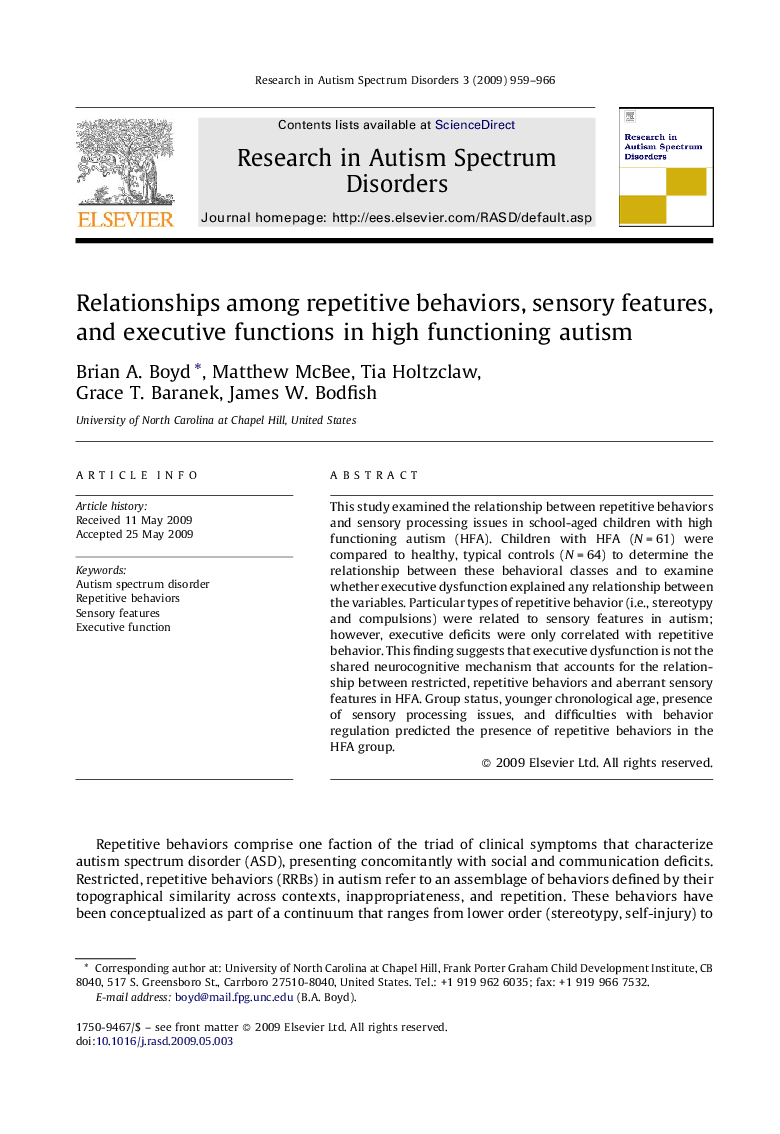| Article ID | Journal | Published Year | Pages | File Type |
|---|---|---|---|---|
| 370800 | Research in Autism Spectrum Disorders | 2009 | 8 Pages |
This study examined the relationship between repetitive behaviors and sensory processing issues in school-aged children with high functioning autism (HFA). Children with HFA (N = 61) were compared to healthy, typical controls (N = 64) to determine the relationship between these behavioral classes and to examine whether executive dysfunction explained any relationship between the variables. Particular types of repetitive behavior (i.e., stereotypy and compulsions) were related to sensory features in autism; however, executive deficits were only correlated with repetitive behavior. This finding suggests that executive dysfunction is not the shared neurocognitive mechanism that accounts for the relationship between restricted, repetitive behaviors and aberrant sensory features in HFA. Group status, younger chronological age, presence of sensory processing issues, and difficulties with behavior regulation predicted the presence of repetitive behaviors in the HFA group.
